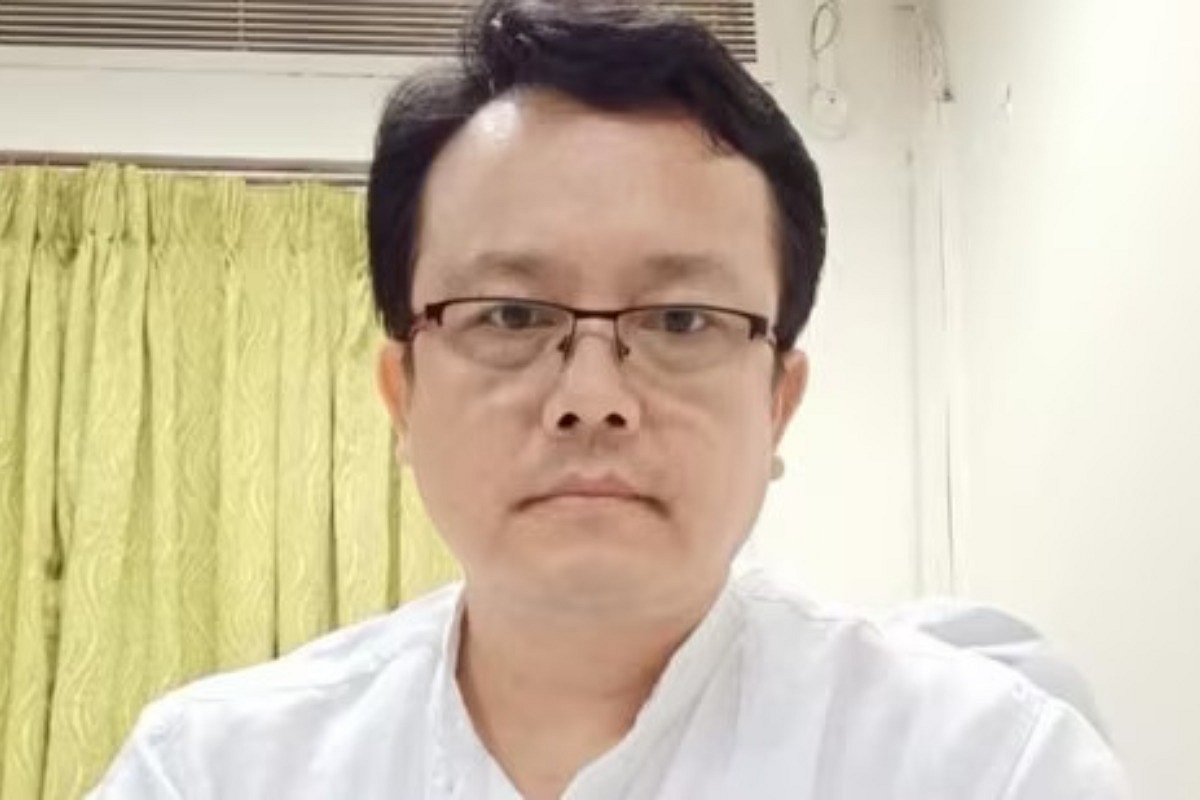News Brief
Kuki Leader Proposes Creating Three Separate Union Territories For Kukis To Resolve Conflict In Manipur

Paolienlal Haokip. (Pic: Hindustan Times)
Paolienlal Haokip, a Kuki leader and BJP MLA, who gained limelight in backdrop of the ongoing ethnic violence in Manipur, has proposed that the best solution to the state's ethnic conflict is to establish three separate Union territories for the Kukis.
In an interview with PTI, Haokip emphasized the need for "political and administrative recognition" of the ethnic separation in Manipur. This goes beyond the previous demands made by other Kuki community leaders for a "separate administration" in Kuki areas, he added.
However, Manipur Chief Minister N Biren Singh and Meitei groups, led by COCOMI, have strongly opposed any attempts to divide the state.
Analysts also suggest that the Central government, which is currently in talks with Kuki groups like the Kuki National Organisation and United Peoples Front, is against such a proposition.
According to Haokip, the way forward is for the Union government to acknowledge the ethnic separation and reorganize Manipur into three Union territories.
Critics argue that the proposed formulation would create separate territories for the Naga, Kuki, and Meitei communities. However, this could be challenging as there are mixed populations in many villages and districts.
Haokip claimed that in the pursuit of lasting peace and the empowerment of each community, it has been suggested that such a move is necessary.
Manipur's population consists of approximately 53% Meiteis, who primarily reside in the Imphal Valley, and 40% tribals, including Nagas and Kukis, who mainly inhabit the hill districts.
The resumption of talks between the central government and Kuki Zo insurgent groups on a bilateral platform has been seen as a positive development.
Kuki militants and leaders, like Haokip, believe that their community has been unfairly treated, with the majority controlling the allocation of resources and suppressing check mechanisms, such as the Hill Areas Committee of the Manipur assembly.
Tribal people are allegedly unhappy because their 'pre-existing' rights were not recognized when tribal lands were declared as reserved forests and protected forests. According to Haokip, the Manipur government further aggravated the situation by bulldozing Kuki villages in protected forests, since they violated the Forests Act.
On the other hand, organizations like COCOMI have claimed Kuki groups as "narco-terrorists" and accused the Kuki-Zomi community of cultivating poppy and promoting illegal migration from Myanmar.
This has led to tensions and protests, with tens of thousands of people gathering in Imphal to voice their opposition to talks with Kuki groups.
Haokip, however, dismissed the accusations and criticized COCOMI for challenging the constitutional provisions governing Manipur.
He further added that it was important to recognize the historical contributions of the Kuki people to the country's national movement.
The Kuki people have a significant history of resistance against British colonial rule, he claimed. The Anglo-Kuki war, also known as the Kuki rebellion, lasted for nearly three years from 1917 to 1919 and resulted in heavy casualties on the British side.
He emphasized that the war stands as a testament to the Kuki's determination and bravery.
He also said that the Kuki community played a substantial role in the fight for independence under the leadership of Netaji and the Azad Hind Fauz. In April 1944, the Indian National Army (INA) liberated Moirang town in Manipur from British forces and raised its flag there.
The Kuki people's active participation in this historic event demonstrates their commitment to the cause of freedom, he stressed.
Support Swarajya's 50 Ground Reports Project & Sponsor A Story
Every general election Swarajya does a 50 ground reports project.
Aimed only at serious readers and those who appreciate the nuances of political undercurrents, the project provides a sense of India's electoral landscape. As you know, these reports are produced after considerable investment of travel, time and effort on the ground.
This time too we've kicked off the project in style and have covered over 30 constituencies already. If you're someone who appreciates such work and have enjoyed our coverage please consider sponsoring a ground report for just Rs 2999 to Rs 19,999 - it goes a long way in helping us produce more quality reportage.
You can also back this project by becoming a subscriber for as little as Rs 999 - so do click on this links and choose a plan that suits you and back us.
Click below to contribute.
Latest